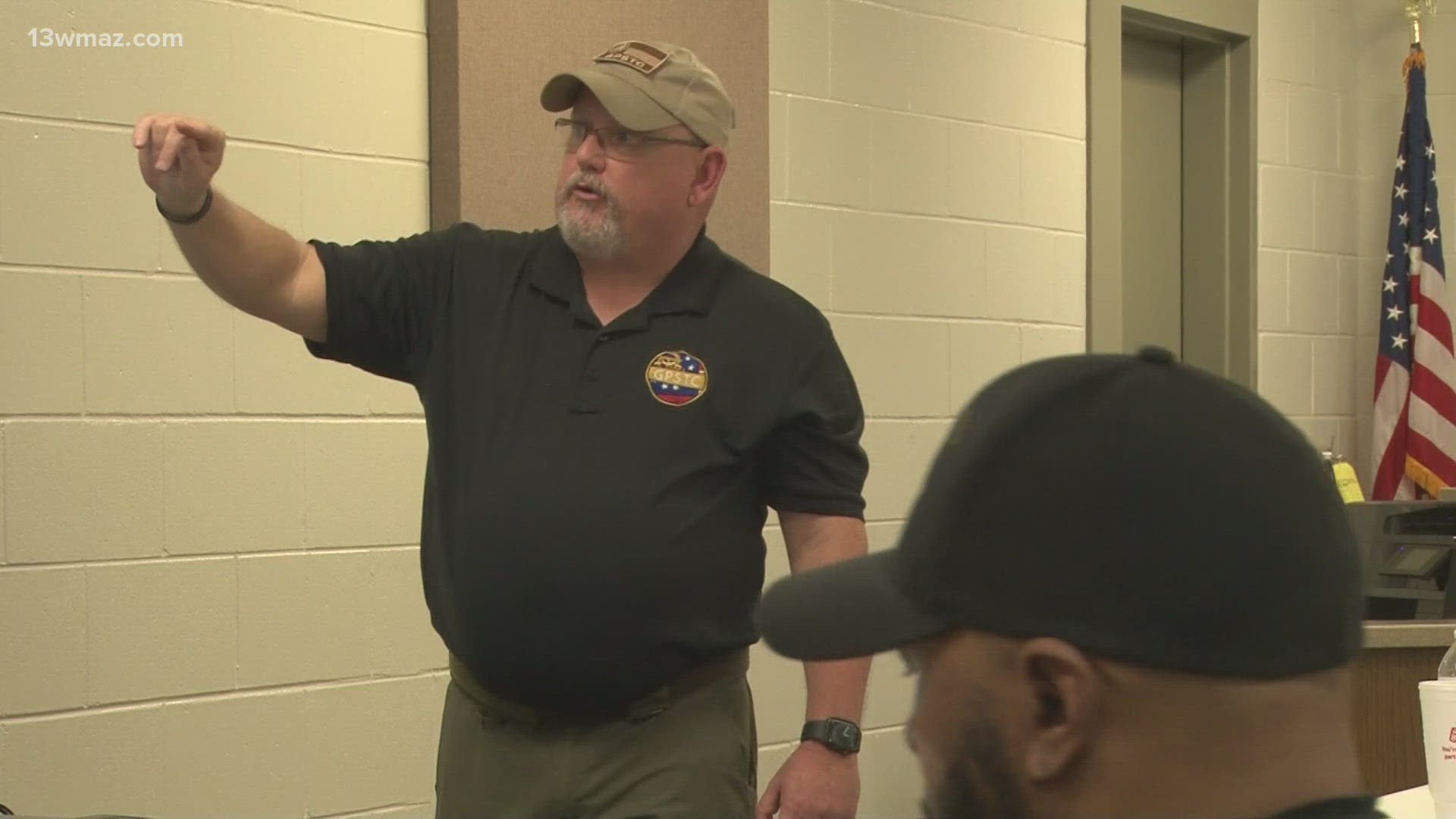WASHINGTON COUNTY, Ga. — Class is in session for nine law enforcement agencies who are taking classes at the Washington County Sheriff's Office.
Washington County Sheriff's Mjr. Trey Burgamy says they're leading this 40-hour-long crisis intervention team training to help tackle a growing problem: mental illness crises.
“You have an average of maybe two to five a week. That's a lot in Washington County or rural Georgia,” Burgamy explained.
He says in a crisis, law enforcement is usually the first line of defense. However, if you're not trained to handle these situations properly, someone could get hurt.
“We were failing as a community, and that's what we're trying to get corrected. We can educate law enforcement and the community on how to deal with mental illness,” he said.
Last summer, a state grant gave Washington County's Sheriff's office $1.5 million to create a multi-agency, co-responder mental health task force to help deal with crises.
Since last December, Burgamy said they’ve brought in experts to teach about various mental health problems and how to properly respond.
He says the trainings tackle topics ranging from suicide intervention, talking to juveniles, learning about autism and mental health first aid.
“We still have a long way to go,” Burgamy said.
This training, it’s a week-long class; half of the course covers case law and the other half will put deputies in real-life scenarios. Those scenarios are geared towards teaching deputies how to empathize and safely deal with crises.
“In order for the co-responder team to be full up and running, we've got to have these deputies and officers CIT trained,” Burgamy explained. “A majority of departments, they don't even have one officer CIT trained."
Johnson County Deputy Sheriff Angie Pittman will be one of the first trained in her department.
“I'm very excited — this is my passion is mental illness,” she said.
Pittman helps inmates with mental illness find resources and help. She says there's a lot of it in Johnson County.
“A majority that comes in is dealing with drug abuse, which then causes mental illness,” she explained.
Pittman says these skills are essential to make sure folks don't get hurt and stay out of jail.
“You’ve got to be aware of what’s going on so you know how to handle that situation," Pittman said. "You know, they can get hurt, they can hurt themselves, they can actually hurt you, and with mental illness, they could not even mean to be hurting you."
She says the next nearest CIT training offered is in Forsyth, so she’s grateful to not have to go far to get trained.
Burgamy says he hopes they can get all law enforcement equipped with a toolbox to handle all sorts of mental health illnesses.
“Jail is not the place for someone with a mental illness or having a crisis,” he said. “We want them to be aware that we are getting the proper training and we're going to take care of their loved ones to the best of their ability."
Burgamy says Washington County is leading the effort to educate law enforcement on how to deal with all types of mental illness.
In August, they'll speak at a crisis intervention training in Indianapolis.
They have not created the task force yet, but it will include six other counties: Hancock, Glascock, Jefferson, Wilkinson and Washington counties.

